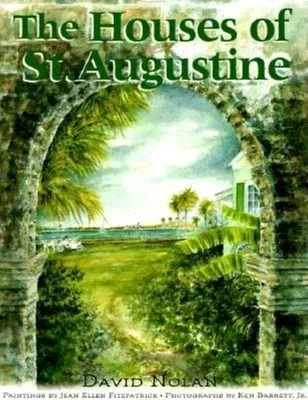David Nolan
(Author)The Houses of St. AugustinePaperback, 1 September 1995

Qty
1
Turbo
Ships in 2 - 3 days
In Stock
Free Delivery
Cash on Delivery
15 Days
Free Returns
Secure Checkout

Print Length
112 pages
Language
English
Publisher
Pineapple Press
Date Published
1 Sep 1995
ISBN-10
1561640751
ISBN-13
9781561640751
Description
Product Details
Author:
Book Format:
Paperback
Country of Origin:
US
Date Published:
1 September 1995
Dimensions:
28.02 x
21.64 x
0.79 cm
ISBN-10:
1561640751
ISBN-13:
9781561640751
Language:
English
Pages:
112
Publisher:
Weight:
408.23 gm